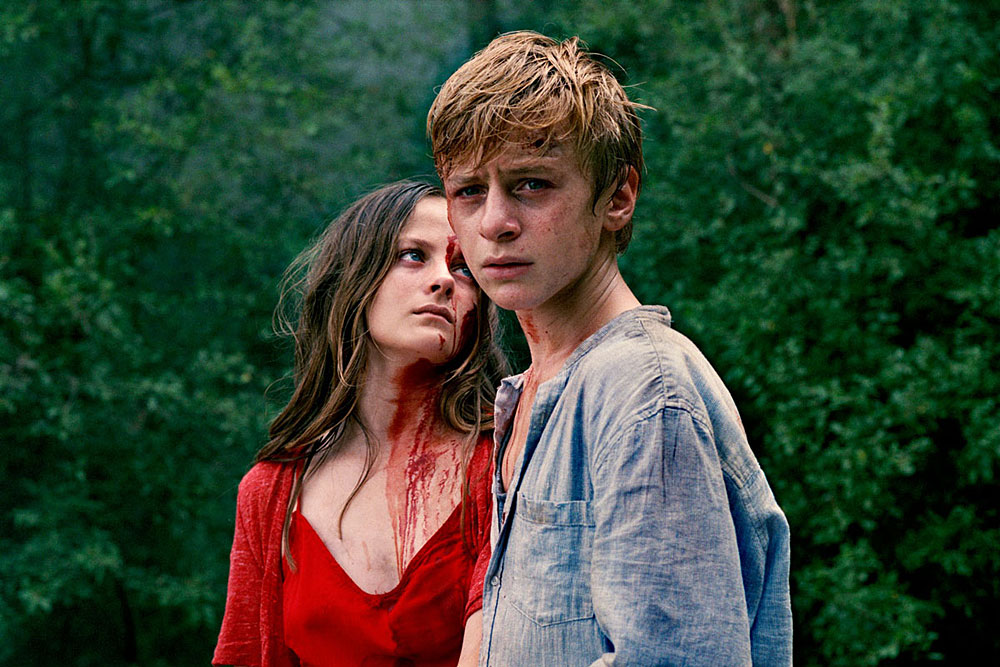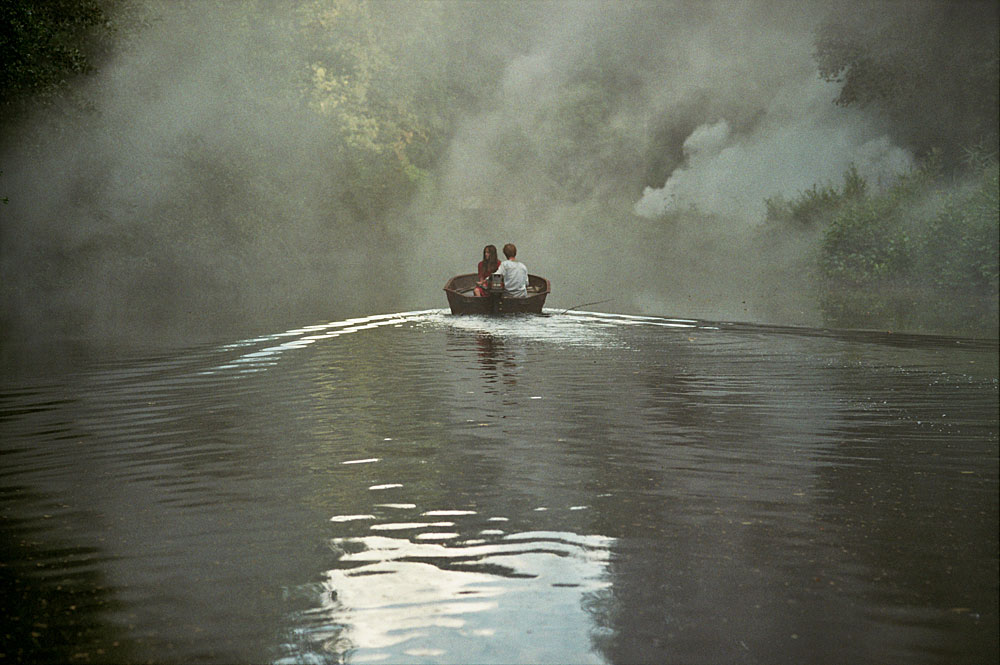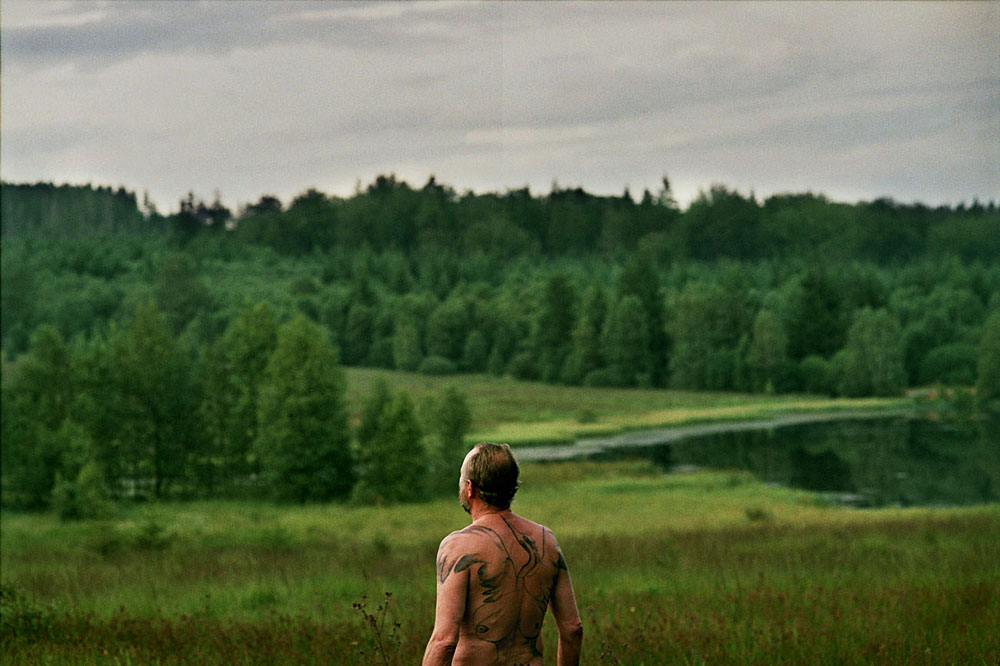Paul lives with his mother in a psychiatric institution deep in a mystic forest. Soon after the arrival of the teenage patient Gloria, a burning spark develops between the two. Socialising is forbidden however: according to the doctors, Gloria is very ill, but Paul believes the girl, who claims she is in real danger. When things get out of hand, they run away together. It is only on the run from insanity (and perhaps towards it) that they get to know each other better.
Paul and Gloria are vulnerable, naïve and brave, but shown in a subtle intersection of the fairytale-like and the real.
“Focused on the theme of mad love, monstrous love, these three films dissect different forms of pathology. Adoration is a cruel and poetic tale about love, madness and faith. A journey into the heart of darkness, along a river that is sometimes real and sometimes illusory, which drifts slowly towards ‘a country where you never arrive’. /…/ The space reveals the characters and their alienations. But it is above all a character-driven film. The young actors are at the centre of the film. The camera will never let Paul go. He is the gaze of the film, its soul and its goodness. This film is the new exploration of a crazy union. In a poetic and pathological way. A sick and baroque love story between two young teenagers, it is also the story of a contamination. The one of Paul developing an adoration for Gloria. Somewhere between the absolute dream and the ordinary reality. Between intense sentimentality and the roughness of impulses, Adoration is a tumultuous, sensual and violent film which ends in a luminous atmosphere as if to suggest that love is an act of faith.”
– Fabrice du Welz
“The exceptional director Fabrice du Welz captures this displaced world of the two youths in hyper sensuous analogue images, and transforms them into a fantastical, surreal primordial soup of desire, lust, and despair: Adoration is a revelation.”
– Markus Keuschnigg, /slash Fantastic Film Festival
“Adoration is, as the intense and mad love it portrays, beautiful and disturbing. It finds that organic growth of young love and follows it as it grows beyond its confines, bypassing a more ordered nature to something chaotic.”
– Shelagh Rowan-Legg, Screen Anarchy
In cooperation with the Kurja Polt Genre Film Festival.


